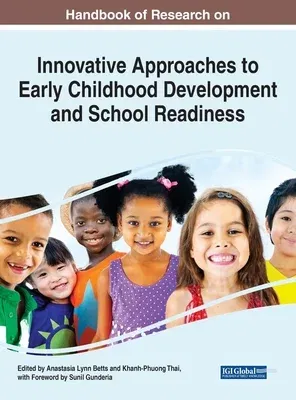Handbook of Research on Innovative Approaches to Early Childhood Development and School ReadinessHardcover, 11 February 2022

Qty
1
Turbo
Ships in 2 - 3 days
In Stock
Free Delivery
Cash on Delivery
15 Days
Free Returns
Secure Checkout

Print Length
908 pages
Language
English
Publisher
Information Science Reference
Date Published
11 Feb 2022
ISBN-10
1799886492
ISBN-13
9781799886495
Description
Product Details
Book Format:
Hardcover
Country of Origin:
US
Date Published:
11 February 2022
Dimensions:
27.94 x
21.59 x
4.78 cm
ISBN-10:
1799886492
ISBN-13:
9781799886495
Language:
English
Pages:
908
Publisher:
Weight:
2358.68 gm